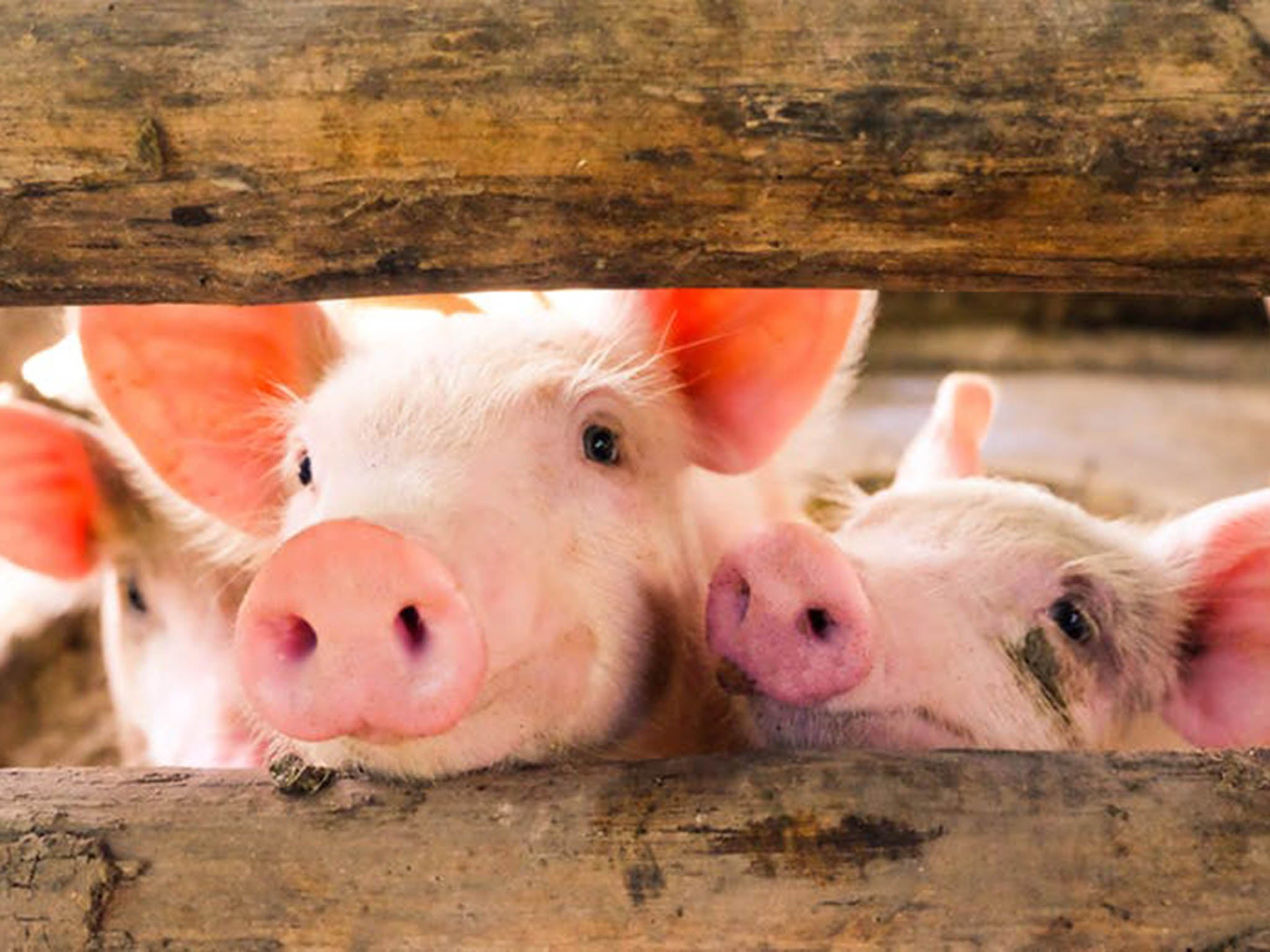Animal welfare activists ‘appalled’ as slaughterhouses fail to install CCTV despite deadline
Exclusive: ‘These business are now operating illegally and need to comply or cease operation,’ Compassion in World Farming says

Your support helps us to tell the story
From reproductive rights to climate change to Big Tech, The Independent is on the ground when the story is developing. Whether it's investigating the financials of Elon Musk's pro-Trump PAC or producing our latest documentary, 'The A Word', which shines a light on the American women fighting for reproductive rights, we know how important it is to parse out the facts from the messaging.
At such a critical moment in US history, we need reporters on the ground. Your donation allows us to keep sending journalists to speak to both sides of the story.
The Independent is trusted by Americans across the entire political spectrum. And unlike many other quality news outlets, we choose not to lock Americans out of our reporting and analysis with paywalls. We believe quality journalism should be available to everyone, paid for by those who can afford it.
Your support makes all the difference.Animal welfare activists say they are “appalled” after it emerged there are slaughterhouses without CCTV, despite a deadline for their installation having passed last month.
The Food Standards Agency (FSA) told The Independent seven per cent of abattoirs in England still had “no CCTV system in place” and an unconfirmed number “were in the process of complying” following the 5 November cut-off.
England and Wales had 278 slaughterhouses in 2016, the latest year for which figures are available, suggesting dozens could be falling foul of the legislation.
The FSA and the Department for the Environment, Food and Rural Affairs (Defra) refused to say how many had “fully complied” in time for the deadline.
When contacted by The Independent, a Defra spokesperson said figures relating to how many slaughterhouses were failing to fully comply were “not publicly available”.
The law change was introduced this year by environment secretary Michael Gove, in an attempt to clamp down on animal mistreatment following disturbing online videos showing slaughterhouse staff abusing animals.
In 2016, footage obtained by The Independent showed the dirty and cramped conditions endured by hens on battery farms that supply major UK supermarkets.
Asked if action would be taken against abbatoirs that were not in compliance with the law, the FSA said it “wouldn’t take enforcement against slaughterhouses that had a plan in place”.
“Perhaps they’re not fully compliant at this very minute, but [if] they’re showing a plan to install CCTV and become compliant in the future, therefore, there would be no enforcement action needed to be taken right now,” an FSA spokesperson said.
That response came despite a six-month “adjustment period” to install CCTV, announced in May, and a government requirement for businesses to “comply in full” by 5 November.
“The government shares the public’s high regard for animal welfare, and we are proud to have some of the highest standards in the world,” animal welfare minister Lord Gardiner said at the time. “Today, we welcome the new law which requires mandatory CCTV in all abattoirs in England.”
Defra insisted action would be taken against “any slaughterhouse that is not complying with the legislation”.
“CCTV is now required in every slaughterhouse in England in all areas where live animals are present, with unrestricted access to footage for official vets,” a Defra spokesperson said. “This will reassure consumers that high welfare standards are being effectively enforced.”
Nick Palmer, head of Compassion in World Farming UK, told The Independent: “We are appalled that, having been given ample notice, some businesses are still not compliant with the government’s requirement to implement CCTV on their premises.
“These business are now operating illegally and need to comply or cease operation. We call on the FSA to enforce this requirement immediately.”
Director of Animal Aid, Isobel Hutchinson, said: “After all the time they have had to comply, it is absolutely shocking that there are slaughterhouses that have not yet managed to introduce this very basic measure, which would help to protect animals from the worst abuse when they are at the most vulnerable time of their lives.
“This deeply troubling situation should be addressed as a matter of urgency, and slaughterhouses that fail to introduce CCTV should be prevented from operating.”
The law change this year came after a month-long consultation with industry groups, animal welfare campaigners and members of the public that, ministers said, showed widespread support for the introduction of mandatory CCTV.
Some 99 per cent of the 4,000 respondents backed the proposal, which was included in the Conservatives’ manifesto at the last general election.
The legislation allows unrestricted access to the last 90 days of footage for FSA vets, who will highlight cases in which animals have been poorly treated. Those responsible could lose their license or face prosecution.
Fiona Steiger, deputy director of the British Meat Processors Association, said: “As this now is legislation we do think every abattoir should be respecting the regulation and installing [CCTV] to meet the requirements of the legislation.”
All BMPA's members had installed cameras, she added.
Join our commenting forum
Join thought-provoking conversations, follow other Independent readers and see their replies
Comments